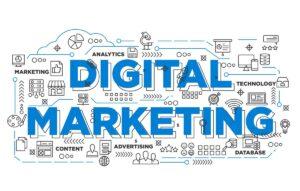A digital marketing strategy is a plan for using channels to grow your visibility online. It should look at factors such as your target audience, strengths and weaknesses, and competitors.
To create an effective strategy you should use data across the business to inform and speculate. This will help you establish which marketing channels to use or test, your target audience, and how to communicate your message or brand.
Audit & Assess:
To create an effective strategy, it’s important to know the digital marketing channels and assets you currently use and have.
Therefore you should conduct a full channel and content audit and include everything on a spreadsheet to get a full picture of your marketing activities (across owned, paid, and earned media).
You should then link each piece to your organizational goals. So if your key goal is to drive revenue, look at each channel and asset (you may just want to look at the top performers if you have a lot of content) and map it to revenue.
Doing this will help you understand what is currently driving revenue and what isn’t. You can then double down on what’s successful and look to explore new content pieces or channels for any further impact.
Focus on the End Result:
In marketing and product development, there can be so much emphasis on the product and the ‘numbers’ around it (i.e. revenue) that sometimes people lose sight of the need that the product fulfills.
What truly matters is who you are marketing to, and why. You need to understand their pain points to get what people are doing with your product or service. In other words, when you demonstrate the post-buying moments, they will remember why they need it in the first place.
Review and Refine:
When you develop your strategy, it’s essential to include key performance indicators (KPIs) that fit with crucial business goals.
You need to have a plan in place to understand your goals and objectives and then monitor the metrics to get insights about the KPIs that matter. To do this you’ll need to:
Step away from vanity metrics – don’t pay attention to the numbers that aren’t crucial to long-term success, e.g. Facebook likes
Use KPIs to measure success, but don’t have them set in stone
Set up continuous intervals for analyzing, understanding, measuring, and reporting
Understand how to isolate critical metrics if it looks like something is not working
Digital Strategy:
It’s one thing for a business to create a digital strategy, but another to implement it correctly. There are many ways a strategy can fail so businesses want marketers with strategic knowledge.
A strategic marketer has the ability to look at how internal and external environments inform marketing activities. Factors to consider are target audience, customer base, strengths and weaknesses, and competitors.
If you don’t have strategic experience it’s worth getting some under your belt so you can use it as an example in an interview. Use our digital marketing strategy research template and action plan template to get an idea of what’s involved and try out a hypothetical plan.




